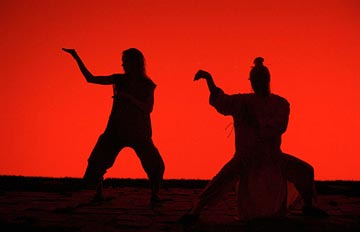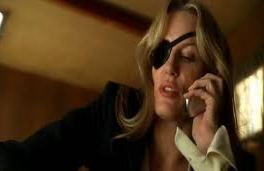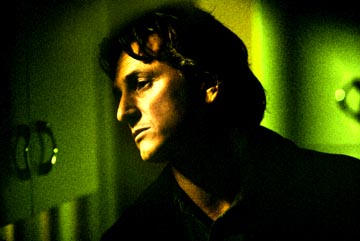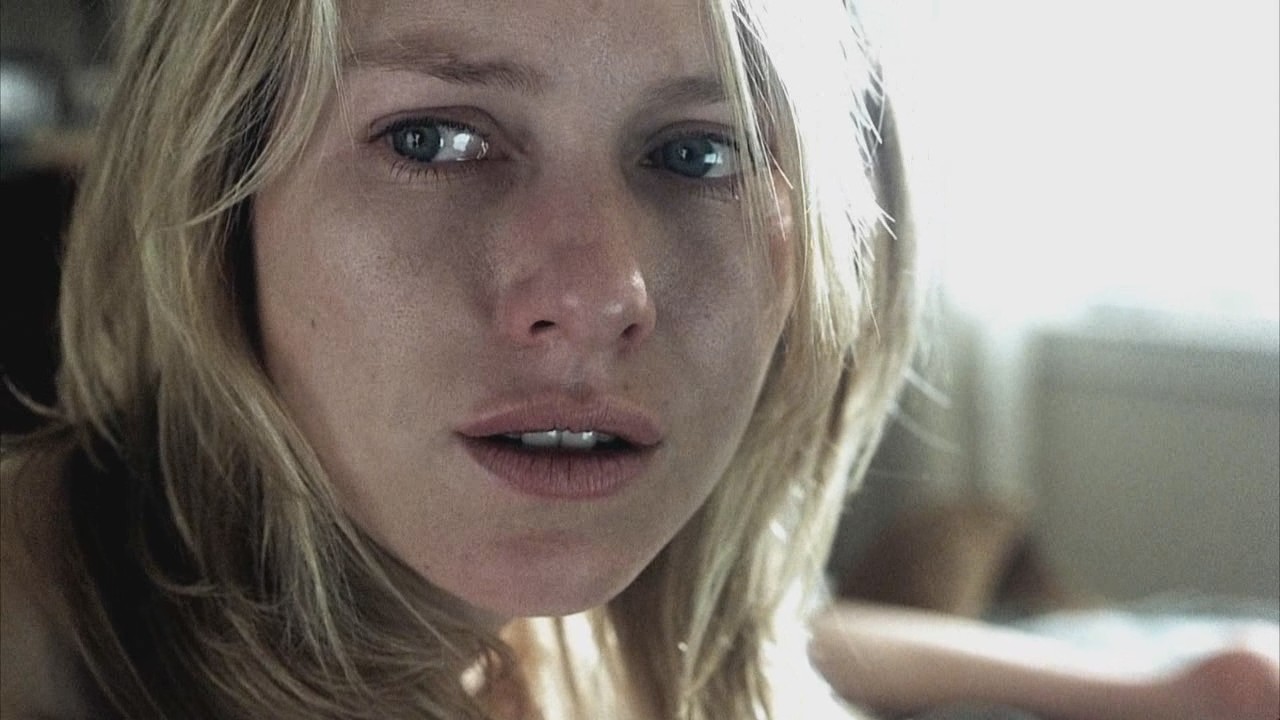A.O. Scott gushes over Sith in the NYT: “This is by far the best film in the more recent trilogy, and also the best of the four episodes Mr. Lucas has directed. That’s right (and my inner 11-year-old shudders as I type this): it’s better than ‘Star Wars.’…[it] ranks with ‘The Empire Strikes Back’ (directed by Irvin Kershner in 1980) as the richest and most challenging movie in the cycle. It comes closer than any of the other episodes to realizing Mr. Lucas’s frequently reiterated dream of bringing the combination of vigorous spectacle and mythic resonance he found in the films of Akira Kurosawa into American commercial cinema.” And politically applicable to boot…Ok, I think, despite my best efforts, my expectations are now definitely raised for Wednesday night. (2nd link via Webgoddess.)
Tag: Critics
III like a bird?
“The bottom line is that ‘Sith‘ has a discipline missing from Episodes I and II. It is just repeatedly not-embarrassing at nearly every turn. Most of the flabby expository walks to landing pads have been neatly snipped. Important things are said with images instead of words. The special effects are better, but draw less attention to themselves.” Ok, now I might be a bit enthused. Alexandra du Pont, far and away AICN‘s best reviewer and a fangirl who loathed the first two prequels, gives Episode III an enthusiastic (and spoiler-filled) endorsement. Her verdict: “Not even close” to ANH and Empire, but Sith “edges out ‘Jedi’.”
The World on Screen.
Despite harboring one of the more irritating crossword puzzles in recent months (it included characters like %,@,&, and *) and a breathless paean to the wildly overrated Julia Roberts, this week’s special NYT Magazine on film and globalization included a number of interesting reads, including an overview of foreign film trends by A.O. Scott, a disquisition on the problems facing the US industry by Lynn Hirschberg, and an extended interview with Maggie Cheung (late of Hero and In the Mood for Love.)
3.1.
 Digital Bits releases the details of a new Matrix trilogy box set. As y’all might remember, I was cautiously positive about Reloaded and really down on Revolutions, but this box set sounds like hella fun. “There will be two audio commentaries for each film – one from philosophers Ken Wilber and Cornel West (who analyze the meanings behind the films), and one from three professional critics who hated all three films (no names given). According to Andy Wachowski, ‘It’s the best idea we’ve ever had. It’s hilarious. They just sit there and rip the s**t out of us for six hours.'”
Digital Bits releases the details of a new Matrix trilogy box set. As y’all might remember, I was cautiously positive about Reloaded and really down on Revolutions, but this box set sounds like hella fun. “There will be two audio commentaries for each film – one from philosophers Ken Wilber and Cornel West (who analyze the meanings behind the films), and one from three professional critics who hated all three films (no names given). According to Andy Wachowski, ‘It’s the best idea we’ve ever had. It’s hilarious. They just sit there and rip the s**t out of us for six hours.'”
Double Billed.
 Well, I’ll say this much for Kill Bill, Vol. 2…it’s a vast improvement over the atrocious Vol. 1. Perhaps because, one kinetic trailer park catfight notwithstanding, Tarantino isn’t trying to be an action director this time around, the second half of this revenge tale hangs together much better than the opening act. There’s actually time devoted to character beats here, which, as QT should know, is ultimately his forte as a writer and director. As such, Michael Madsen and David Carradine in particular get a chance to bring some much-needed complexity to the wafer-thin plot around which these films are constructed.
Well, I’ll say this much for Kill Bill, Vol. 2…it’s a vast improvement over the atrocious Vol. 1. Perhaps because, one kinetic trailer park catfight notwithstanding, Tarantino isn’t trying to be an action director this time around, the second half of this revenge tale hangs together much better than the opening act. There’s actually time devoted to character beats here, which, as QT should know, is ultimately his forte as a writer and director. As such, Michael Madsen and David Carradine in particular get a chance to bring some much-needed complexity to the wafer-thin plot around which these films are constructed.
Still, like its predecessor, Kill Bill Vol. 2 has the whiff of a vanity project. It’s obvious Quentin had the time of his life making these two films, and they definitely seem to work as a love letter to a certain subset of grindhouse and chop-socky film fans (a group which includes David Edelstein, Roger Ebert, and Elvis Mitchell.) But, frankly, I thought a lot of Vol. 2 felt sloppy and derivative. I still don’t see why this project had to be two films, particularly as, once again, there’s so many drawn-out, redundant, or unnecessary episodes on display here. What’s up with the Uma car intro? Bud’s boss? Daryl Hannah’s googlesearch notes? Bill’s ridiculously QT-like riff on Superman? The tremendously stupid pregnancy test faceoff? As I noted about the first half of Kill Bill, Jackie Brown moves languidly, but with purpose. For much of these KB flicks, which often feel more like some sub-Tarantino outing (Killing Zoe, for example) than they do Jackie or Pulp Fiction, I was just bored.
 Ultimately, there’s a difference between paying fleeting homage to some film influence and constructing a four and a half hour movie that just moves lazily from homage to homage. The Good, the Bad, & the Ugly, some Wu-Tang flick, Oh, look, The Vanishing. I’m sure that I recognized less than 10% of the movies Tarantino was referencing here, and I’m sure that probably invalidates my opinion of the film in many people’s eyes. And, if QT wants to show off his film-geek cred so blatantly and the film-geeks eat it up like candy, who am I to complain? Still, I very much hope that Tarantino had to get this orgy of excess out of his system, and that he’ll now settle down and focus his considerable talents a little more narrowly, instead of jumping all over the map as he does here.
Ultimately, there’s a difference between paying fleeting homage to some film influence and constructing a four and a half hour movie that just moves lazily from homage to homage. The Good, the Bad, & the Ugly, some Wu-Tang flick, Oh, look, The Vanishing. I’m sure that I recognized less than 10% of the movies Tarantino was referencing here, and I’m sure that probably invalidates my opinion of the film in many people’s eyes. And, if QT wants to show off his film-geek cred so blatantly and the film-geeks eat it up like candy, who am I to complain? Still, I very much hope that Tarantino had to get this orgy of excess out of his system, and that he’ll now settle down and focus his considerable talents a little more narrowly, instead of jumping all over the map as he does here.
From Plato’s Cave to Lacuna, Inc.

Via All About George, A.O. Scott applies Stanley Cavell to Eternal Sunshine of the Spotless Mind. I’m a big Cavell fan…in fact, his reading of Emersonian perfectionism figured heavily in (and, with Michael Sandel’s work, helped inspire) my political philosophy list last week. Can’t wait to see how Cities of Words turned out, and how close it dovetails with his old Moral Perfectionism course at Harvard.
“The Jesus Chainsaw Massacre.”
We’ve heard from the pope (sort of) (“It is as it was?” Jesus was a tall blue-eyed white guy?), we’ve heard from Harry Knowles, but now the “real” reviews of The Passion (which I’ll probably see this weekend) are coming in fast, and so far they all say the same thing: Too much violence and gore, too little charity and grace. David Edelstein sums up the emerging consensus view: “This is a two-hour-and-six-minute snuff movie — The Jesus Chainsaw Massacre — that thinks it’s an act of faith.” And even Roger Ebert, an admirer of the film (and one whom I rarely agree with these days), confesses: “This is the most violent film I have ever seen.” Hoo boy. I was afraid of that. Beware the packs of bloodthirsty bible-thumpers on your way out, y’all.
Sprockets, the Movie.

So I finally decided to make an end run around the January movie slump and catch up on some of the Oscar contenders of last year, and lo! I stumbled upon the most “Emperor has no Clothes” film experience I’ve had in a good long while. To wit, I have yet to see Amores Perros, but 21 Grams, despite pretty solid performances by its three leads, was a ridiculously ponderous and pretentious piece of work and, worse, just a flat-out dull film. It’s hard to talk about without going into major spoilers, so, if that’s a problem, I’ll leave you at this: Elvis Mitchell, who just went screaming down the Murphometer with this “film of the year” rave, owes me $10.25.
Still here? Ok, well, 21 Grams looks very nice, I’ll give it that. And the acting is universally good…poor Naomi Watts comes off rather shrill, but I don’t really blame her. That being said, Grams is a relentlessly downbeat, oh-so-sudsy soap opera for the arthouse crowd. And I do mean downbeat — there’s no joy in Mudville here. These three characters are basically stuck in the last twenty minutes of Requiem for a Dream for two and a half hours. Ok, sure, horrible things happen to good people all the time, even symbolic and portentous hit-and-runs. But the way bad mojo just piles up on these three souls throughout the movie is so deadening and ham-handed that it eventually becomes laugh-out-loud funny. (Seriously, there was a sequence near the end just after Naomi Watts wails about her child dying with (gasp) red – not blue – shoelaces on, and just before she’s simultaneously scolded by a nurse for her drug addiction and told she’s pregnant, where I finally turned on this soap opera of a film, and had to double over in convulsions to stop from breaking out into loud peals of awkward giggling.)
Yes, I know it’s horrible to titter at the tragic intertwining of a drug-addicted woman’s family wiped out in a tragic truck accident, her dying, infertile, heart-transplant lover, and the star-crossed ex-alcoholic jesus-freak recidivist who can’t hold down a job, maintain familial harmony, or drive home without Bad Stuff Happening. But, you know, it’s even worse for a film to milk grotesque amounts of tragedy to try to substitute for honest characterization or real human emotion. As I believe someone mentioned in the Slate movie club this year, it’s a wonder they didn’t bring a puppy onscreen at some point and start kicking the hell out of it.
Finally, just to add to the Sprockets-ness of the whole enterprise, the film’s narrative is completely splintered, with the story flipping back, forth, back, and forth again. For the first fifteen minutes or so, this made for an interesting viewing experience. But, by the end, (a) it adds nothing — you get to realize that there was absolutely no point in telling the film this way other than sheer artistic license — and (b) it’s detracting and distracting: you’re waiting desperately to see the two or three scenes that you know have been coming for an hour, just so the movie will end already. When these scenes finally do happen, of course, they’ve been foreshadowed for so long that they have no power left but the power to annoy.
In sum, 21 Grams was a pretty atrocious swing-and-a-miss. Sean Penn’s other movie last year, Mystic River, did a much better job of rooting tragic events in interconnected lives, mainly because it was grounded by a strong sense of place and a more realistic balance between light and dark moments. But, like its characters, this film just ambles around in its terminally depressed jag for so long that it loses any sense of perspective, and instead becomes just a vehicle for indulging the arthouse fallacy that misery is a substitute for character. By the end of this dull, implausible, flick, I had only one word on my mind: ANTS!

There’s Always One.
In the interests of equal time, a dissenting opinion on RotK: “The final entry in the ‘Lord of the Rings’ trilogy reveals once more that what the chick flick is to men, this trilogy is to women…The well-calculated hype and exaggerated praise…has obscured what the series really is: an FX extravaganza tailored to an adolescent male’s fear of sentiment and love of high-tech wizardry…Who would have thought that Peter Jackson would direct such soulless films?” Sigh…I figured somebody would write a piece like this, but I didn’t expect it to show up in the Times, of all places. Just goes to show, there’s no accounting for taste. Update: Stephanie Zacharek responds.

From the ashes a fire shall be woken,
A light from the shadows shall spring;
Renewed shall be blade that was broken,
The crownless again shall be King.
[Fellowship][ Towers]
We come to it at last. Reviews and clips below for those of you who aren’t yet swayed. For everyone else, our wait is finally over, our journey at an end. But not before one last foray into Middle Earth, and I get the sense this’ll be one for the ages.
Update: Well, I’m back. In short, RotK is awe-inspiring, at times genuinely scary, and often overwhelming. As per the last two, it’s going to take another viewing to fully wrap my head around it (I’m going again this evening), but I already know it’s head and shoulders above TTT. A full report soon.
